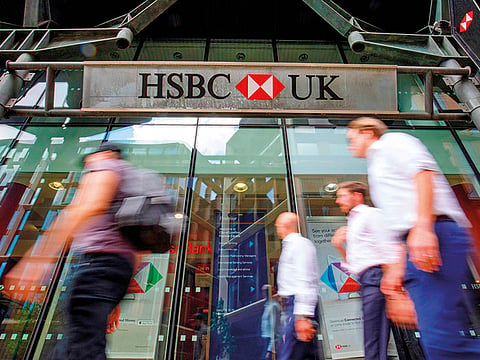Wall Street hiring spree puts junior bankers in driving seat
Along with increased hiring, banks are desperate to hold on to workers they already have

Also In This Package
New York: Twenty-somethings dreaming of Excel all-nighters are facing their best prospects in years.
HSBC Holdings Plc this week became the latest global investment bank pledging to hire a flock of junior bankers to help analysts and associates avoid burnout amid an avalanche of deals. JPMorgan Chase & Co. said last week it plans to add almost 200 staff, joining Goldman Sachs Group Inc. and Jefferies Financial Group Inc. in bolstering their ranks.
Dealmakers have tried handing out raises, paying for vacations and enforcing curfews to try to prevent defections or even revolts as active markets and the work-from-home grind weighed on the bottom of their corporate pyramids. Now, many firms are coming to the conclusion that, with no let-up on deals, the best fix is more bodies.
"We have not seen this level of demand for investment bankers since pre-2008," Anthony Keizner, a managing partner at the recruiting firm Odyssey Search Partners, said in an interview. "People are being brought in because pitch books need to be produced, deals need to be worked on and there just isn't the staffing at the banks that are able to do that."
Along with an increased focus on hiring, banks are desperate to hold on to the workers they already have. HSBC is speeding up some promotions and boosting fixed pay for young dealmakers. Others, including Credit Suisse Group AG and Wells Fargo & Co., are giving some of their junior employees one-time $20,000 bonuses. Houlihan Lokey Inc. offered some workers an all-expenses paid vacation.
Move to avoid burnout
"This reminds me of the dot-com days," said Joseph Leung, founder and managing partner of London-based banking-recruitment firm Aubreck Leung. Back then, Leung said, potential new recruits were being lured away to tech startups by Ping-Pong tables, Aeron chairs, free lunches, and business-casual Fridays and summers. "Fast-forward 20 years and now banks need to take it up a notch or two."
Raymond James Financial Inc. told bankers this week it would pay them $20,000 bonuses now and an additional $10,000 bonus in December as a retention offer, according to a spokesman. The firm's also debuting an initiative to come up with long-term plan to change the investment banking work environment.
Concerns that young bankers are being overworked aren't new. Many firms have enacted policies or strengthened existing ones over the past decade to try to ensure employees get a break. In some of the most extreme cases, worker suicides have spurred the companies to act.
But pandemic lockdowns have brought a new set of challenges as the work-from-home experience failed to measure up to the expectations of post-college life on Wall Street.
Workers stuck at home over the past year have spent endless hours in front of computers handling requests from higher-ups to fine-tune Excel models or slide presentations as deal volume soared. Meanwhile, the things that make the early years of the job worth it - face time with executives, camaraderie with fellow junior workers staying at the office into the wee hours, the bustle of city life - are virtually nonexistent.
There are 1,342 openings for investment-banking analysts in New York and an additional 639 slots for associates, according to job listings compiled by LinkedIn. In London, such openings total 1,214 and Hong Kong has 588, the data show.
Pulling hair
"There's no question that hiring at the junior level is way up. It ebbs and flows from year to year - either it's a candidate-rich market or there's more jobs," Russ Rybinski, chief executive officer of the recruiting firm Rybinski Capital Partners, said in an interview. "Right now, we're pulling our hair out trying to fill all the searches at the junior levels. It's actually a little bit more difficult than recruiting the senior people."
That's not to say grabbing one of the jobs is suddenly a sure thing. Goldman Sachs executives have long said they get more than 30 applicants for every opening, and Wall Street firms often have lower acceptance rates than Ivy League universities.
But the world's biggest banks are getting desperate. Many have already raided talent from boutique investment banks and smaller regional competitors. Now they're considering applicants from consultancies or even large global accounting firms.
"If you don't have a traditional background and you didn't do a summer internship in your senior year at an investment bank - which the majority of junior bankers in recent years have done - there's probably no better time to try to join, because there are seats being opened," Odyssey's Keizner said. "Now, whether that seat is a seat you're comfortable in is a separate question."
Sign up for the Daily Briefing
Get the latest news and updates straight to your inbox









